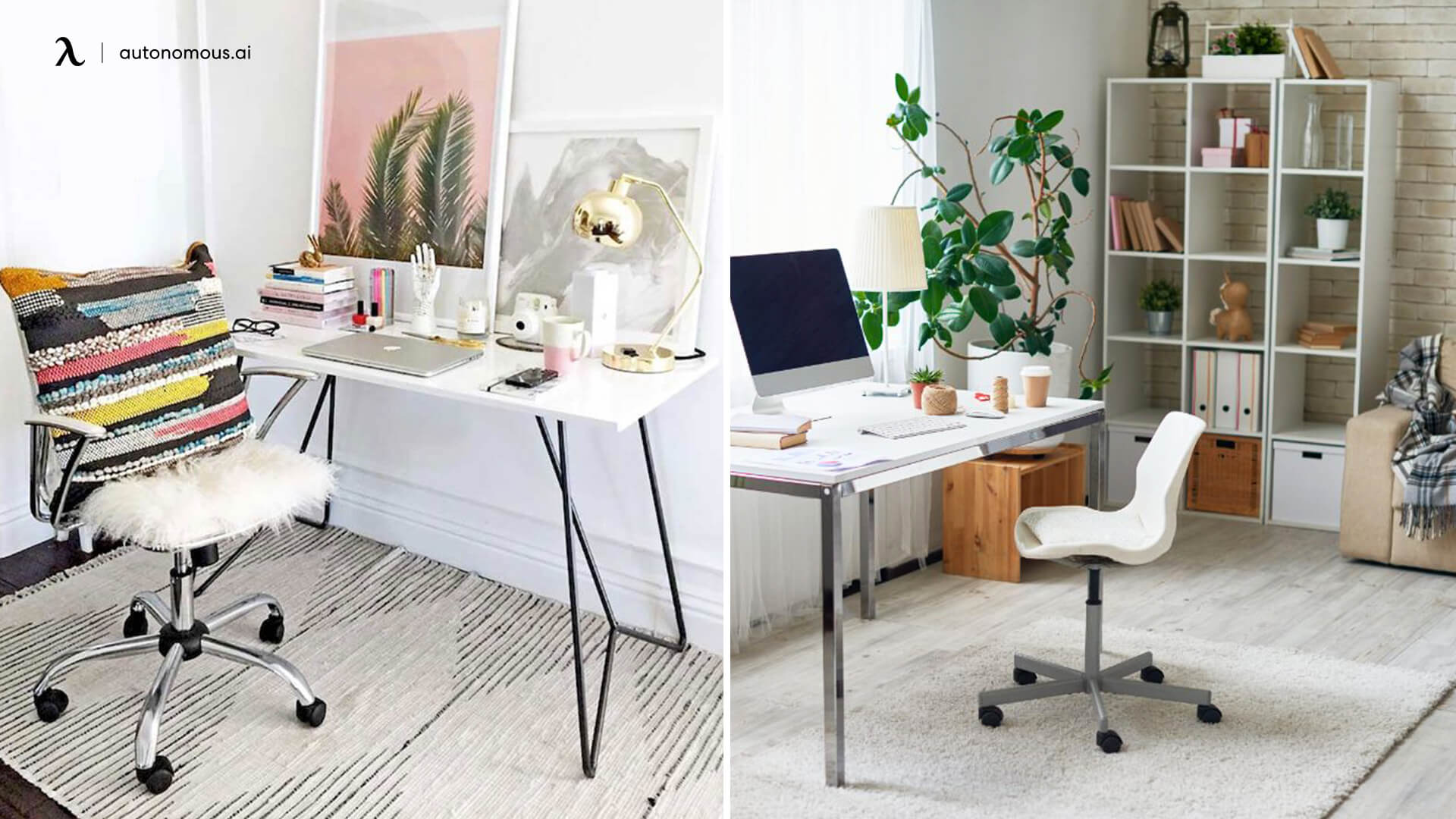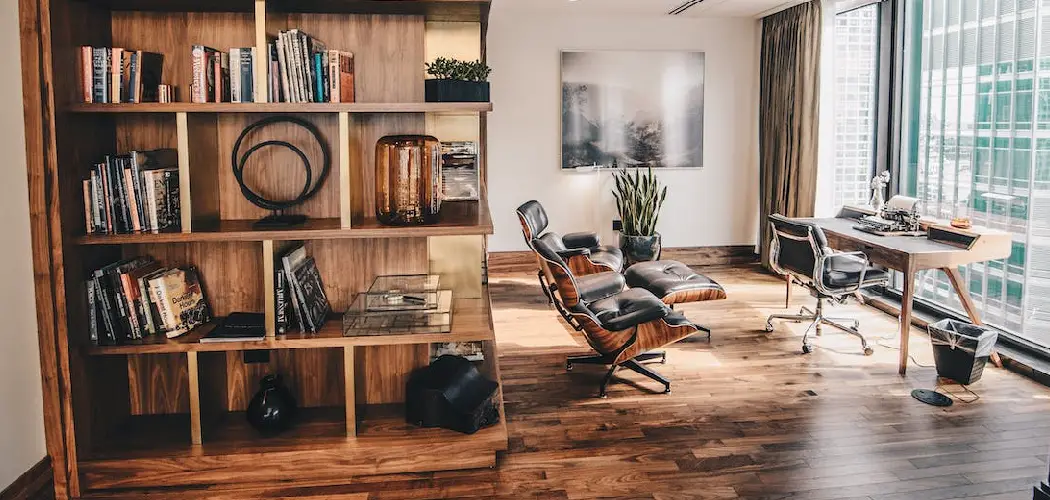Remember that time you excitedly bought a new rolling chair for your home office, only to find your hardwood floors groaning under its every twitch? The dream of gliding effortlessly across your workspace became a reality marred by unpleasant noises and the fear of scratching your beautiful floors. The question then arises: are rolling chairs truly compatible with hardwood floors, or is it a recipe for disaster?

Image: mromavolley.com
The answer, fortunately, isn’t a simple yes or no. While it’s true that rolling chairs can damage hardwood floors if not handled carefully, it’s also possible to enjoy the convenience of a rolling chair without compromising the beauty of your floors. Today, we’ll unravel the complexities of rolling chairs and hardwood floors, providing insights and tips to ensure both your comfort and the longevity of your flooring.
Understanding the Potential for Damage
The Impact of Rolling Chairs on Hardwood Floors
Hardwood floors, while aesthetically pleasing, are relatively delicate. Their smooth surface, especially when finished with a thin layer of varnish or polyurethane, can easily be scratched by the wheels of rolling chairs. These scratches can range from subtle blemishes to deep gouges, dramatically diminishing the visual appeal of your floors. This can be particularly problematic with chairs that have hard plastic wheels, which can leave more noticeable scratches.
Beyond scratches, rolling chairs can also dent hardwood floors. This usually happens when excessive weight is applied to the chair, causing the wheels to dig into the wood. This becomes more likely with chairs that lack proper weight distribution or are equipped with wheels that lack adequate support. The result? An unsightly dent that can be difficult to repair.
Factors Determining Potential Damage
Several factors contribute to the potential for damage when using rolling chairs on hardwood floors. They are, but not limited to:
- Type of hardwood floor: Harder woods like oak and maple are more resistant to scratches than softer woods like pine and cherry.
- Finish: A thick layer of polyurethane or varnish offers more protection against scratches and dents than a thinner finish.
- Wheel type: Hard plastic wheels are more likely to scratch floors than rubber or soft caster wheels. Chairs with castors that are designed for hard floor surfaces usually minimize damage.
- Chair weight: Heavy chairs are more likely to cause dents and scratches than lighter ones.
- User habits: Moving a chair smoothly across the floor is less likely to cause damage than forcefully dragging it.

Image: officefixes.com
The Role of Floor Mats
Floor mats serve as a protective barrier between rolling chairs and your hardwood floors. They create a cushioned surface that reduces the impact of the chair’s weight and prevents the wheels from directly contacting the wood. These mats are especially helpful in high-traffic areas like in front of your desk or workstation, where the chair is constantly moving.
When selecting a mat, consider its size, material, and durability. Larger mats provide better protection, while durable materials resist wear and tear. Opt for mats designed for use with rolling chairs, as they typically feature a non-slip surface and adequate cushioning.
Tips for Keeping Your Hardwood Floors Safe
Choosing the Right Rolling Chair
Not all rolling chairs are created equal. When purchasing a chair for use on hardwood floors, look for the following features:
- Soft casters: Choose chairs with rubber or soft caster wheels that are designed for use on hard surfaces. These wheels minimize friction and reduce the risk of scratches.
- Weight distribution: Choose a chair with a well-designed base that evenly distributes weight, preventing excessive pressure on specific points and minimizing the risk of dents.
- Chair height adjustment: Chairs that can be adjusted to your height allow you to utilize the chair without putting unnecessary strain on the wheels or the floor.
- Braking system: Look for chairs with braking systems that allow you to lock the wheels when not in motion, preventing accidental movement and potential damage.
Caring for Your Hardwood Floors
In addition to choosing the right chair, maintaining your hardwood floors is essential for preventing damage. Here are a few tips:
- Regular cleaning: Wipe up spills and sticky substances immediately to prevent staining or attracting dust. Regular cleaning of your hardwood floors will maintain its shine, and remove dirt that can contribute to scuffs and scratches.
- Vacuuming regularly: Vacuum your floors regularly to remove grit and dust particles that can act like sandpaper on the surface. Look for a vacuum fitted with a soft bristle head to avoid damaging your wood.
- Avoid abrasive cleaners: Use cleaning solutions specifically designed for hardwood floors, avoiding harsh chemicals or abrasive cleaners that can damage the finish.
- Refinishing: If your floors show signs of wear or damage, consider refinishing them. This process involves sanding down the surface to remove scratches and applying a new layer of finish.
Frequently Asked Questions About Rolling Chairs and Hardwood Floors
Here are some frequently asked questions (FAQs) about using rolling chairs on hardwood floors:
Q: Can I use any kind of rolling chair on hardwood floors?
A: While it’s possible to use a rolling chair on hardwood floors, not all chairs are ideal. Chairs with hard plastic wheels that are not designed for hard surfaces are more likely to cause scratches. It is recommended to choose chairs with soft caster wheels or those specifically designed for hard floors.
Q: Does the type of hardwood floor matter?
A: Yes, it does. Harder woods like oak and maple are more resistant to scratches and dents compared to softer woods like pine and cherry.
Q: Are floor mats necessary?
A: Floor mats are highly recommended, especially in high-traffic areas where the chair moves frequently. They create a protective barrier that minimizes wear and tear on your floors.
Q: What should I do if my hardwood floors already have scratches?
A: If your hardwood floors are already scratched, you can try to touch them up with a wood filler or refinish the floors. For deeper scratches, you may need to contact a professional.
Can Rolling Chairs Be Used On Hardwood Floors
Conclusion
Ultimately, using rolling chairs on hardwood floors is about finding a balance between comfort and floor protection. By choosing the right chair, implementing preventive measures, and diligently maintaining your hardwood floors, you can enjoy the convenience of a rolling chair without sacrificing the beauty and longevity of your flooring. Remember, a little planning and care goes a long way in preventing unnecessary wear and tear.
Are you interested in learning more about the specific types of rolling chairs and floor mats that are best suited for hardwood floors? Perhaps you would like to know more about refinishing your floors if they have sustained damage? Let us know in the comments!



/GettyImages-173599369-58ad68f83df78c345b829dfc.jpg?w=740&resize=740,414&ssl=1)


